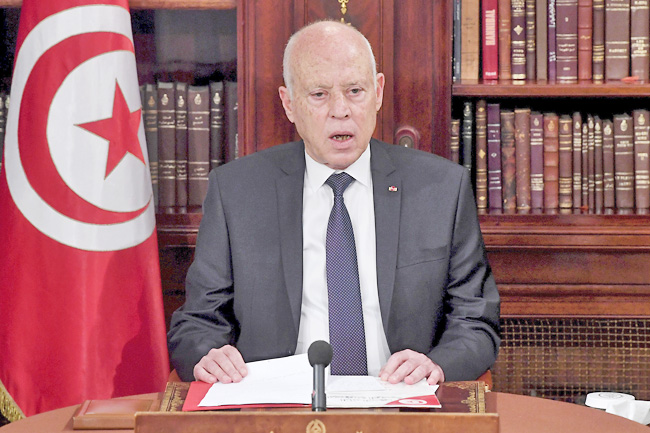TUNIS, TUNISIA (AP) – Tunisians head to the polls yesterday to vote on a new constitution – a controversial initiative spearheaded by Tunisian President Kais Saied that critics said will formalise his power grab and reverse hard-won democratic gains in the North African nation.
Yesterday’s referendum marks one year to the day that Saied froze Tunisia’s Parliament and dismissed his government – a move derided by critics as “a coup” but celebrated by Tunisians who had grown exasperated with the country’s political elites and years of economic stagnation. In the year since then, Saied has given himself the power to rule by decree and has fired dozens of judges, decisions that have provoked a series of protests.
The new constitution gives the office of the president all executive powers and removes key checks and balances. The power of Tunisia’s judiciary and parliament would be greatly reduced.
Critics warn that Saied’s new political structure could pave the way to a new autocracy in the country that rose up against former autocratic strongman Zine El Abidine Ben Ali in 2011 and kicked off the Arab Spring pro-democracy protests. Tunisia is the only nation to emerge with a democracy from those protests.
Saied said the changes are needed to eliminate corruption and “return the nation to the revolutionary path”.

The drafting and organisation of yesterday’s referendum has been marred by controversy.
Sadok Belaid, a constitutional law professor Saied brought in to head the committee drafting the new constitution, has denounced the result – which was extensively revised by the president – saying it “contains considerable risks and shortcomings” that could pave the way for “a disgraceful dictatorial regime”.
Saied has urged Tunisians to back the proposal, despite electoral standards requiring that he remain neutral. The vote will be supervised by the Independent High Authority for Elections, whose members he appointed.
A former constitutional law professor, Saied ran for the presidency on a populist, anti-corruption platform in 2019, winning with over 70 per cent of the votes in the second round.
Supporters of Saied believe the new constitution will put an end to years of political deadlock.


